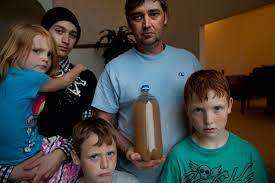Pros & Cons of FRACKING IN WEST VIRGINIA Are Not Even Equal
From a Letter by Barbara Daniels, Morgantown Dominion Post, Sunday, December 18, 2022
According to the Ohio River Valley Institute, in the most heavily fracked county in West Virginia, the industry promise of jobs never materialized.
What did materialize, though, was a reduced population, dangerously polluted air and water and major damage to infrastructure. Also damaged was the clean, wild and wonderful West Virginia that supports tourism, recreation and farming. Yet even with the highest gas production in West Virginia, Wetzel County still suffers from double digit unemployment.
A recent study conducted by the Environmental Working Group states just one fracked drilling site deploys harmful chemicals sufficient “to contaminate more than 100 billion gallons of drinking water to unsafe levels … more than 10 times as much water … New York uses in a single day.” These chemicals are often so dangerous that frack-waste cleanup crews report sores covering their legs and soles burnt off boots.
Wetzel County also had many frack vehicle accidents; dump trucks smashed through guardrails, semis straddling roads, cranes toppled into ravines and drill rigs fallen off semis — on deeply rutted roads littered with industry equipment. Meanwhile, Marcellus gas is mainly exported to other countries, keeping U.S. natural gas prices high.
However, as a Bloomberg report put it, extraordinarily generous fossil-fuel subsidies hide the true cost of fracking, wherein the average well production declines by 60% in the first year. So, though needing more and more costly wells to maintain output, destructive drilling — using taxpayer dollars — continues.
While fracking created startlingly few jobs in Appalachia, most of them no longer exist. Instead, the money went to corporate profits and out-of-state workers.
#######+++++++#######+++++++########
See also: Health Professionals: Fracking Can’t Be Done Without Threatening Public Health, Grant Smith (EWG) & Tasha Stoiber, Ph.D. (EWG), March 16, 2018
